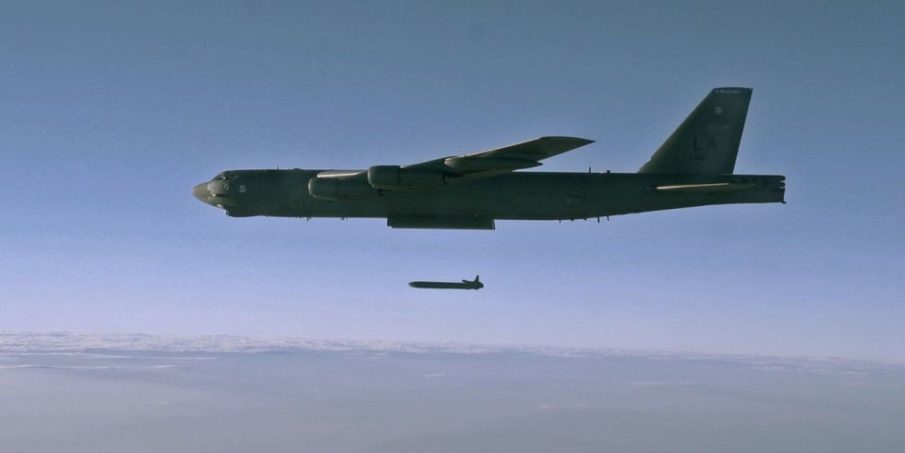The United States acknowledged this week that the ongoing development of nuclear capable cruise missile platforms, particularly those that may be launched from airborne bombers, may not be in keeping with a cold war era treaty established between the U.S. and Russia. According to a statement made by State Department spokeswoman Heather Nauert, America would be happy to give up these programs … just as soon as Russia begins honoring the treaty themselves.
According to the State Department, Russia first violated the 1987 Intermediate-Range Nuclear Forces Treaty in 2014, when they deployed new ground-launchable cruise missiles that fell within the treaty’s banned range of 500-5,500 kms (310-3,417 miles), particularly because the platform has been identified as nuclear capable by the Kremlin. According to Nauert, however, Russian officials have refused to participate in any form of in-depth discussion regarding the matter, prompting the U.S. to pursue their own avenues of countering the new threat posed by Russia.
The United States is now “pursuing economic and military measures intended to induce the Russian Federation to return to compliance,” said Nauert. These measures include researching new ground-launched conventional cruise missile systems that would fall within the banned ranges cited by the aforementioned treaty, but would not be considered nuclear capable platforms.
“This step will not violate our INF Treaty obligations,” Nauert said. “We are also prepared to cease such research and development activities if the Russian Federation returns to full and verifiable compliance with its INF Treaty obligations.”
In an Op-Ed penned in 2015 by William J. Perry, Secretary of Defense under Bill Clinton, he called on President Obama to cancel development programs for nuclear capable cruise missiles, including those that can be launched from America’s dated nuclear bombers. These missiles are intended to prolong the life of the airborne third of America’s nuclear triad, permitting the aging bombers to fire missiles from further away, and reducing the risk of being shot down by modern anti-aircraft defenses.
“Because they can be launched without warning and come in both nuclear and conventional variants, cruise missiles are a uniquely destabilizing type of weapon.”
In his piece, he also cited Philip Hammond, former British defense secretary, who also believes cruise missiles of these sort are more danger than they’re worth.
“A cruise-based deterrent would carry significant risk of miscalculation and unintended escalation. At the point of firing, other states could have no way of knowing whether we had launched a conventional cruise missile or one with a nuclear warhead. Such uncertainty could risk triggering a nuclear war at a time of tension.” Hammond said.
The United States seems willing to take these warnings to heart, but not before they see progress on the Russian front. In a statement given to Reuters by a senior official from Trump’s administration that chose to remain anonymous, the U.S. isn’t simply going to honor the treaty while Russia works to take advantage of the strategic gap the treaty creates.
“If we took the Russian approach, we’d all sort of say happy things about what a nice treaty we have and we would both go about violating it secretly,” said the senior administration official. “But that’s not how we roll. It’s because we like arms control when it’s done properly.”
Here is a video of Russian Tupolev Tu-95MS strategic bombers firing cruise missiles at ISIS targets in Syria. While these are conventional ordnance missiles, the platform is nuclear capable and similar to that being developed by the United States military for use in platforms like the B-52 Stratofortress.
Already have an account? Sign In
Two ways to continue to read this article.
Subscribe
$1.99
every 4 weeks
- Unlimited access to all articles
- Support independent journalism
- Ad-free reading experience
Subscribe Now
Recurring Monthly. Cancel Anytime.


COMMENTS